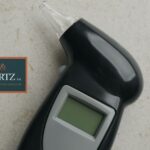You may have gone through a DUI checkpoint over Memorial Day or the Fourth of July holiday. There is also a chance you could find yourself at a checkpoint over any other weekend this summer. It’s important to know what makes a DUI checkpoint legal or illegal, as well as your rights when going through a sobriety checkpoint.
What is a DUI Checkpoint?
A DUI checkpoint, also called a sobriety checkpoint, is a method used by law enforcement to stop and arrest impaired drivers. They are commonly used on holiday weekends, in busy areas, or nearby events or locations where drinking frequently occurs.
Legal Components of DUI Checkpoint
The police are not able to set up a checkpoint anywhere, at any time, and in any fashion. There are requirements that a DUI checkpoint must meet in order to be legal in the state of Florida.
First, the checkpoint must be publicized in advance. Law enforcement must state the date and location of the checkpoint online or in another public medium.
Second, the police must operate the checkpoint in a reasonable manner. For example, the checkpoint take an excessive amount of time to get through, cannot hold up traffic, etc.
Third, and possibly most importantly, the checkpoint must be fair and random. The police are not allowed to stop every car that goes through, nor can they choose who to stop based on how they look or other suspicions. Instead, they must use a set interval to determine who they are going to stop. For example, they may stop every sixth car going through the checkpoint.
Can I Avoid a Checkpoint Ahead?
Yes, you are legally allowed to avoid a checkpoint if you see it ahead. However, be sure to make legal turns as you do so. You cannot make an illegal U-turn in order to avoid the checkpoint.
Charged with DUI At a DUI Checkpoint in Florida
Do you have concerns about the legality of the DUI checkpoint you went through? Are you currently facing a DUI charge? In for both or either cases, our team at Hager & Schwartz, P.A. is here to help you. We will investigate the sobriety checkpoint, your unique situation at the checkpoint, and the factors of your arrest to create a strong defense for your case. Call us today to get started: (305) 330-1360.




